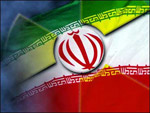 Bloomberg: Rio Tinto Group, the world’s third- largest mining company, said Iran can maintain a 15 percent stake in its Rossing uranium operation after a United Nations ruling barred the country from investing in mines of the fuel.
Bloomberg: Rio Tinto Group, the world’s third- largest mining company, said Iran can maintain a 15 percent stake in its Rossing uranium operation after a United Nations ruling barred the country from investing in mines of the fuel.
By Jesse Riseborough
 Oct. 27 (Bloomberg) — Rio Tinto Group, the world’s third- largest mining company, said Iran can maintain a 15 percent stake in its Rossing uranium operation after a United Nations ruling barred the country from investing in mines of the fuel.
Oct. 27 (Bloomberg) — Rio Tinto Group, the world’s third- largest mining company, said Iran can maintain a 15 percent stake in its Rossing uranium operation after a United Nations ruling barred the country from investing in mines of the fuel.
“We believe we are complying” with UN Resolution 1929, London-based Rio Tinto said today in an e-mailed statement to Bloomberg News, citing talks it held with the governments of the U.S., U.K., Australia and Namibia on the resolution passed by the 15-nation Security Council on June 9.
Namibia’s Rossing mine is the world’s third-biggest producer of the nuclear fuel, accounting for 7 percent of global supply, according to World Nuclear Association data. Iran, subject to international sanctions over its nuclear program, yesterday started loading fuel into the core of its first atomic power station, which is scheduled to start next year.
Iran “does not gain access to any nuclear technology through its investments,” Rio said in the statement. “It has no uranium product off-take rights and all dividend payments have been frozen.”
Iran began processing low-enriched uranium to reactor grade in February, intensifying its conflict with Western countries. The U.S. and its allies accuse the nation of seeking to develop atomic weapons. Iran rejects the charge and says it needs the technology to generate electricity and for other civilian purposes such as medical research.
Council Vote
The UN Security Council voted 12-2, with one abstention, to impose new sanctions on Iran in June, including restricting investment in uranium mines. U.S. President Barack Obama said that day the sanctions would be “vigorously enforced.”
State-owned Iranian companies are facing increasing restraints globally from investing in foreign energy supplies. European Union governments joined the U.S. in July in imposing curbs on Iran’s energy industries, banks and shipping companies, seeking to force the Persian state to halt uranium enrichment.
Iran, through Iran Foreign Investment Co., has owned its Rossing stake since 1975, Rio said today.
Mark D. Wallace, president of New York-based non-profit group United Against Nuclear Iran and a former U.S. ambassador to the UN, wrote to Rio Chairman Jan du Plessis last week and alleged Iran’s stake appeared to be a violation of U.S. law.
“Profits from the Rossing uranium mine are channeled directly to the Iranian government, emboldening and financially empowering its pursuit of an illegal nuclear weapons program,” Wallace wrote in the letter dated Oct. 21. “It is time for Rio Tinto and Rossing to recognize this threat as well and follow the lead of other responsible companies and stop putting short- term profits ahead of Iran’s clear threat to global security.”
Wallace requested a response from Rio by Nov. 2.
Rossing Output
The Rossing mine, located 70 kilometers (40 miles) inland from the coastal town of Swakopmund, started production in 1976. Rio owns 69 percent of the operation, which produced 4,150 metric tons of uranium oxide in 2009, according to its website.
Iran hasn’t made any further investment in Rossing since the resolution was passed, Rio said. There’s an agreement that any Iranian shareholder options relating to any future expansion would revert to the government of Namibia, it said. Namibia has a 3 percent holding in the mine.
Last year, Rossing sold 46 percent of its output to power utilities in Asia, 32 percent to utilities in North America, 11 percent to Europe and 11 percent to Japan. Sales are conducted under the terms of the International Atomic Energy Agency’s Nuclear Non-Proliferation Treaty, according to the mine’s website.


